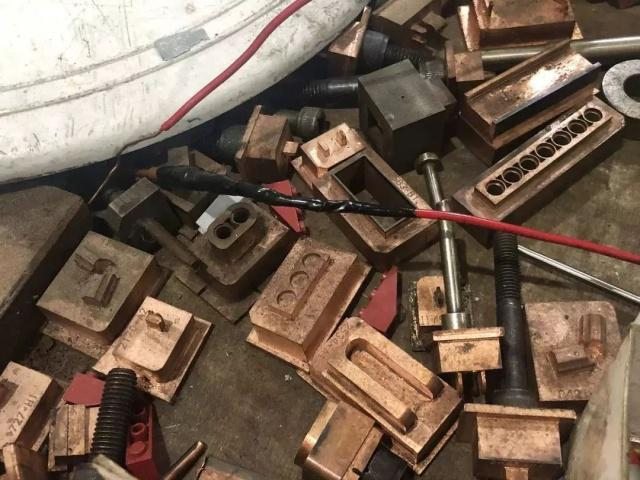Chinese anti IP infringement law is not to be toyed with, a lesson that a gang of suspected counterfeiters may have learned after its millions of yuan business of making fake Legos was busted.

The moulds allegedly used in the manufacturing of the faked Lego toys. (Photo taken by the law enforcement and published by Shanghai Fabu, the official Weibo account of the municipality government.)
The raid took place in the coastal city of Shanghai on Tuesday with four suspects being detained, according to a media briefing published on the municipality's official social media account on Friday. Assets worth of more than 200 million yuan (around 30 million US dollars) were also seized, including streamlines, products, and packages.
The investigation leading to the Tuesday operation has been underway since last October when the local law enforcement first detected the sales of the alleged counterfeit jigsaw that bears “striking resemblance” to the Denmark toy maker's star product, the briefing says.
The suspects were found to have replicated Lego's design and manufacture began in 2015. The alleged counterfeits made into the market in 2016 under the brand of “Lepin,” a name reminiscent of the Danish company, but were priced at only one-tenth of how much real Lego jigsaw cost in China, the local media Paper.com quoted an anonymous investigating officer as saying. Goods were not only sold on China's e-commerce platforms but also exported to Russia and Germany, according to the officer.
The investigation is still ongoing before the case moves to court. The suspects could face criminal charges if the court rules that they broke anti-infringement law and made a considerable unlawful profit.
The epidemic of counterfeiting established brands in China has been curbed in recent years as the government puts its feet down in protecting intellectual property.
On the same day the Shanghai government briefed the public about the case, four government agencies jointly launched the "Sword Net 2019" campaign targeting copyright infringement on the Internet, especially "paraphrasing plagiarism" by so-called "we media" accounts and illegal and irregular activities by image agencies.
Initiated by the National Intellectual Property Administration, the Cyberspace Administration of China, the Ministry of Industry and Information Technology and the Ministry of Public Security, the operation is set to run from the end of April to the end of October.


